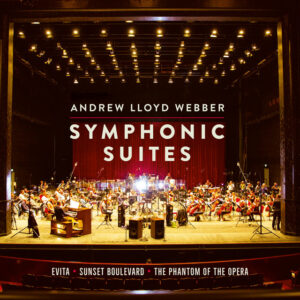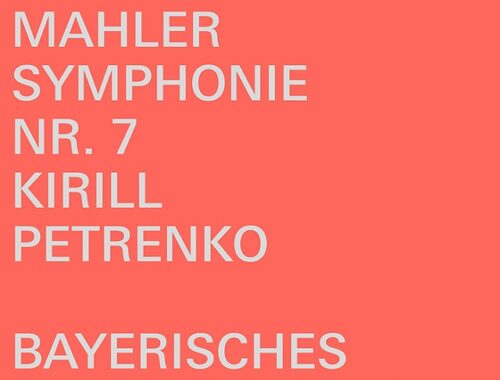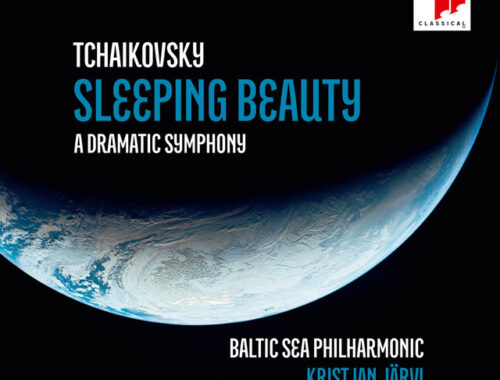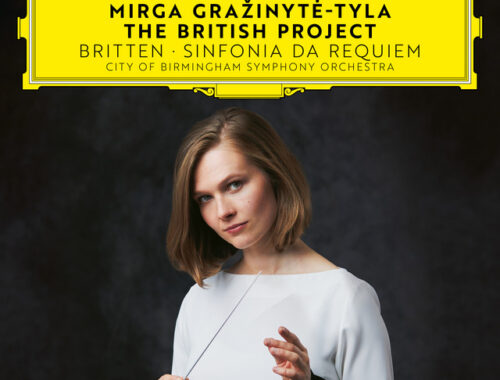GRAMOPHONE Review: Andrew Lloyd Webber Symphonic Suites – The Andrew Lloyd Webber Orchestra/Lee
 The Symphonic Suite has quite a pedigree, from those seeking to bask in the drama and hit tunes of favourite operas without words or voices (conductor Carlo Rizzi has been doing so with Puccini, I gather) to the likes of Robert Russell Bennett’s symphonic snapshot of the Gershwins’ Porgy and Bess and Bernstein’s Symphonic Dances from West Side Story. Andrew Lloyd Webber – purveyor of some of the lushest and best loved tunes in contemporary musical theatre – was bound to do so at some point and it seems only fitting that he should celebrate his restoration of London’s most majestic home of musical theatre – the Theatre Royal Drury Lane – with these timely blasts from his past.
The Symphonic Suite has quite a pedigree, from those seeking to bask in the drama and hit tunes of favourite operas without words or voices (conductor Carlo Rizzi has been doing so with Puccini, I gather) to the likes of Robert Russell Bennett’s symphonic snapshot of the Gershwins’ Porgy and Bess and Bernstein’s Symphonic Dances from West Side Story. Andrew Lloyd Webber – purveyor of some of the lushest and best loved tunes in contemporary musical theatre – was bound to do so at some point and it seems only fitting that he should celebrate his restoration of London’s most majestic home of musical theatre – the Theatre Royal Drury Lane – with these timely blasts from his past.
An 81-piece scratch orchestra does the business from the stage of ‘the Lane’ (who knew it was such a natural recording venue) and the engineering team behind Such Sweet Thunder have done an exciting job of realising the kind of orchestral amplitude that the likes of Lloyd Webber can only have dreamt about in this age of electronic ‘sampling’ and hyped-up amplification.
These orchestral syntheses – expertly fashioned by Lloyd Webber and orchestrator Andrew Cottee – entirely hang on the choices of material made, the ingenuity of the segues, and most importantly their ability to conjure a convincing sense of musical ‘narrative’. Not surprisingly Evita makes dramatic capital of ‘A Requiem for Evita’ and all those rousing paeans to ‘a new Argentina’ – an intoxicating mix of Latino fizz and the darkly epic. “Don’t Cry For Me’ is strategically at the heart of it all, the lushest of tangos, and ‘Rainbow High’ is all castanets and tambourines. I love that ‘You Must Love Me’ (written for the movie but now added to the stage score) is given poignant pride of place late in the piece with solo cello, piano and violin reflective of its very personal sentiments.
Sunset Boulevard of course lends itself to the textural opulence of the treatment. This sepia ‘noir’ world of old Hollywood and things like that gorgeously sultry ‘Main Title’ theme (‘The Greatest Star of All’) blossom magnificently in this context. There is the big band period ‘Swing’, saxes and vibes to the fore, and oodles of nostalgia (‘The Perfect Year’) – just one of the things that has always set this particular score apart. And if ever there was a melody yearning for, ripe for, the symphonic treatment it’s ‘With One Look’. That and the other big ballad in the show – ‘As If We Never Said Goodbye’ – make for a fabulous peroration.
But there’s no doubt in my mind that the most successful of the suites in terms of its narrative coherence and sumptuous ‘operatic’ nature is Phantom. If we’re talking big, bigger, biggest, then the super-Gothic, organ-buttressed opening is surely what Lloyd Webber always had in his mind’s ear. The segue into ‘Think of Me’ sets the romantic tone but it is things like the treatment of ‘Prima Donna’ and ‘Masquerade’ that seem to come straight from the annals of Franz Lehár and his like. And with numbers like ‘All I Ask of You’ or ‘Music of the Night’ – luxuriant and then some – one is reminded not just how durable and insidiously memorable these melodies are but how readily they lend themselves to being expensively dressed to kill.
You May Also Like

GRAMOPHONE Review: Mahler Symphony No. 7 Bayerisches Staatsorchester/Petrenko
12/08/2021
GRAMOPHONE Review: Sleeping Beauty – A Dramatic Symphony: Baltic Sea Philharmonic Orchestra/Järvi
27/01/2021

